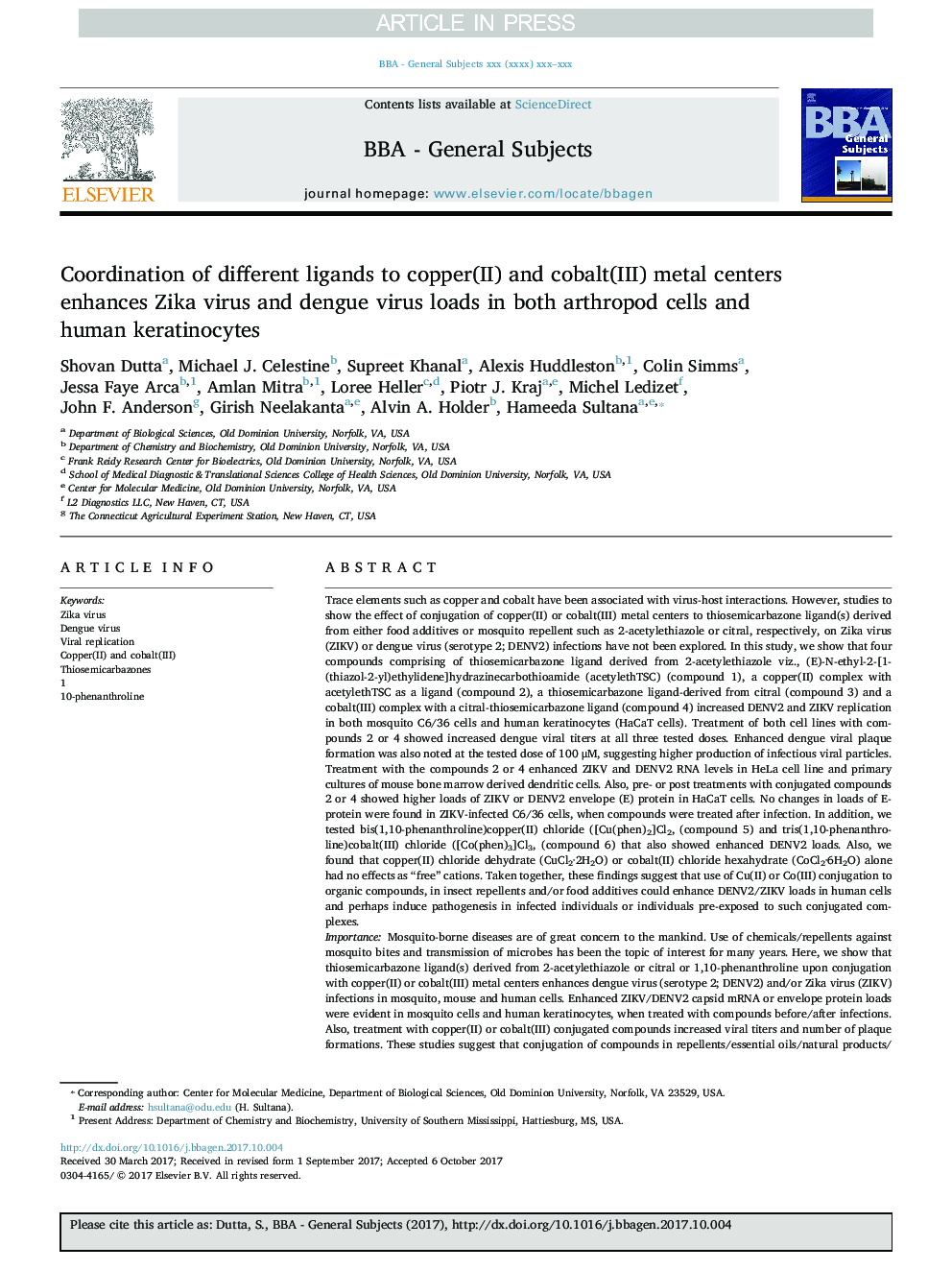| Article ID | Journal | Published Year | Pages | File Type |
|---|---|---|---|---|
| 8300957 | Biochimica et Biophysica Acta (BBA) - General Subjects | 2018 | 11 Pages |
Abstract
Mosquito-borne diseases are of great concern to the mankind. Use of chemicals/repellents against mosquito bites and transmission of microbes has been the topic of interest for many years. Here, we show that thiosemicarbazone ligand(s) derived from 2-acetylethiazole or citral or 1,10-phenanthroline upon conjugation with copper(II) or cobalt(III) metal centers enhances dengue virus (serotype 2; DENV2) and/or Zika virus (ZIKV) infections in mosquito, mouse and human cells. Enhanced ZIKV/DENV2 capsid mRNA or envelope protein loads were evident in mosquito cells and human keratinocytes, when treated with compounds before/after infections. Also, treatment with copper(II) or cobalt(III) conjugated compounds increased viral titers and number of plaque formations. These studies suggest that conjugation of compounds in repellents/essential oils/natural products/food additives with copper(II) or cobalt(III) metal centers may not be safe, especially in tropical and subtropical places, where several dengue infection cases and deaths are reported annually or in places with increased ZIKV caused microcephaly.
Related Topics
Life Sciences
Biochemistry, Genetics and Molecular Biology
Biochemistry
Authors
Shovan Dutta, Michael J. Celestine, Supreet Khanal, Alexis Huddleston, Colin Simms, Jessa Faye Arca, Amlan Mitra, Loree Heller, Piotr J. Kraj, Michel Ledizet, John F. Anderson, Girish Neelakanta, Alvin A. Holder, Hameeda Sultana,
